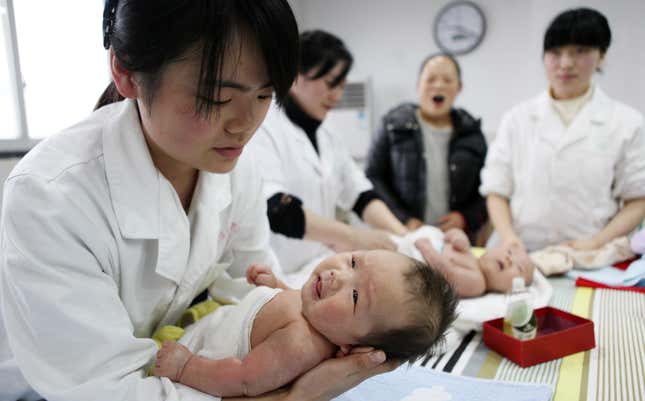China Is Ending Its Two-Child Policy, Allowing Couples to Have Up to Three Children
EntertainmentEntertainment

Married couples in China can now have up to three children, marking an end to the country’s two-child policy.
Thew news came on Monday, according to the New York Times, as part of renewed efforts to address declining birthrates and a shrinking labor pool. “Renewed” because the Chinese government had hoped that increasing the limit to two, which it did in 2015, would be enough to incentivize couples to have children and remedy the economic problems that often accompany low birthrates.
-

-

-

-

-

-

-

-

-

-

-

-

-

-

-

-

-

-

-

-

-

-

-

-

-

-

-

-

-

-

-

-

-

-

-

-

-

-

-

-








































